« Return to all search results
Title Search Results
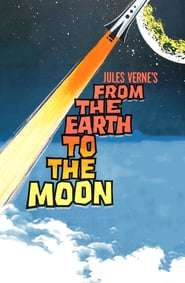
Set just after the American civil war, businessman and inventor Victor Barbicane invents a new source of power called Power X. He plans to use it to power rockets, and to show its potential he plans to send a projectile to the moon. Joining him for the trip are his assistant Ben Sharpe, Barbicane's arch-rival Stuyvesant Nicholl, and Nicholl's daughter Virginia. Nicholl believes that Power X goes against the will of God and sabotages the projectile so that they cannot return to earth, setting up a suspenseful finale as they battle to repair the projectile.
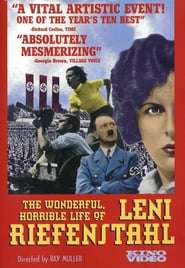
This documentary recounts the life and work of one of most famous, and yet reviled, German film directors in history, Leni Riefenstahl. The film recounts the rise of her career from a dancer, to a movie actor to the most important film director in Nazi Germany who directed such famous propaganda films as Triumph of the Will and Olympiad. The film also explores her later activities after Nazi Germany's defeat in 1945 and her disgrace for being so associated with it which includes her amazingly active life over the age of 90.
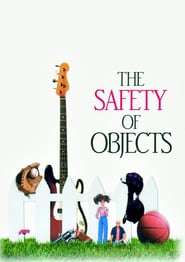
In a suburban landscape, the lives of several families interlace with loss, despair and personal crisis. Esther Gold has lost focus on all but caring for her comatose son, Paul, and neglects her daughter and husband. Lawyer Jim Train is devoted to his career, not his family. Helen Christianson wants to find a new spark in life, while Annette Jennings tries to rebuild hers.
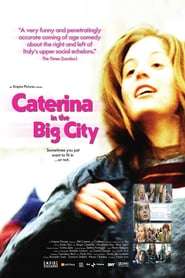
When her father, Giancarlo is transferred to Rome from the small country town of Montalto Di Castro, Caterina, a 12 years old girl, will discover her new classmates, a totally new world, an ambient extremely divided politically.
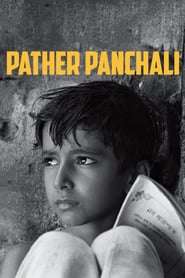
The film is a coming-of-age story of a young boy named Apu, and life in his small Indian village in the early years of the 20th century. Apu is born to a poor Brahmin family in Bengal. His father Harihar is a priest who dreams of becoming a successful poet and a playwright; he does not earn enough, but the mother Sarbajaya keeps the family going. Because of their limited resources, Sarbajaya resents having to share her home with Harihar's elderly cousin: the old and helpless cripple Indir. Apu's sister Durga is always getting into trouble for stealing guavas from the neighbour's orchards for Indir. She cares for Apu like a good older sister but loves to affectionately tease him. Together, they make do with what they have and enjoy the simple joys of life.
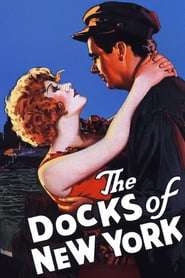
A blue-collar worker on New York's depressed waterfront finds his life changed after he saves a woman attempting suicide.

Desperate to help her ailing brother, a young woman agrees to compete in a deadly game of "Would You Rather," hosted by a sadistic aristocrat.
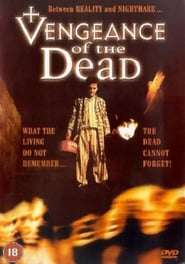
Visiting his Grandpa in the small town of Harvest, Eric is haunted in his dreams by Julia, a ghost who falls in love with him, appearing first as a little girl and later as an adult. In the dreams, Julia reveals that she was burned alive and her mother murdered by hooded men. He is soon unable to distinguish these dreams from reality, and finds himself desecrating the grave of one of the killers, and burning alive those that are still alive, all while sleepwalking.
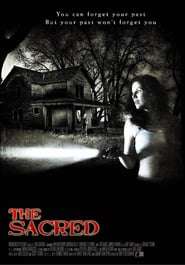
Fresh off the success of her first horror novel, Jessie is revered by the literaly world as the next Stephen King. While her editor anxiously awaits her next novel, she is suffering from writer's block. Out of fear of becoming a one-hit novelist, Jessie ventures to her deceased aunt's cabin in the woods to find inspiration for her new book. Having not visited in many years, Jessie has no memory of her childhood summers at the cabin or her time spent in the surrounding woods. But when darkness falls on Jessie's first night alone in the cabin, her memories begin to awaken. A dark presence resides here; one that seems to be watching Jessie every move and one that she has always been afraid of. A series of erotic, bizarre and terrifying events that force Jessie to question her own reality.
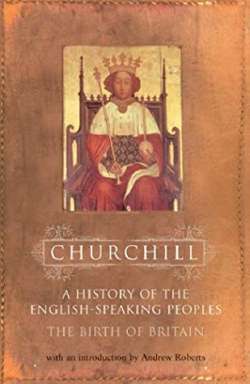
The first volume of the Nobel Prize–winning prime minister’s breathtaking history of Britain explores the birth of a great nation and world power. In the “wilderness” years after Winston S. Churchill unflinchingly guided his country through World War II, he turned his masterful hand to an exhaustive history of the country he loved above all else. And the world discovered that this brilliant military strategist was an equally brilliant storyteller. In 1953, the great man was awarded the Nobel Prize for Literature for “his mastery of historical and biographical description as well as for brilliant oratory in defending exalted human values.” In this first of four volumes exploring the history of the United Kingdom, The Birth of Britain begins with Caesar’s invasion in 55 BC, and continues through the establishment of the constitutional monarchy, the parliamentary system, and the people who played lead roles in creating democracy in England. The History of the English-Speaking Peoples series remains one of the most compelling and vivid collections of history ever written. “This history will endure; not only because Sir Winston has written it, but also because of its own inherent virtues―its narrative power, its fine judgment of war and politics, of soldiers and statesmen, and even more because it reflects a tradition of what Englishmen in the hey-day of their empire thought and felt about their country’s past.” —The Daily Telegraph
